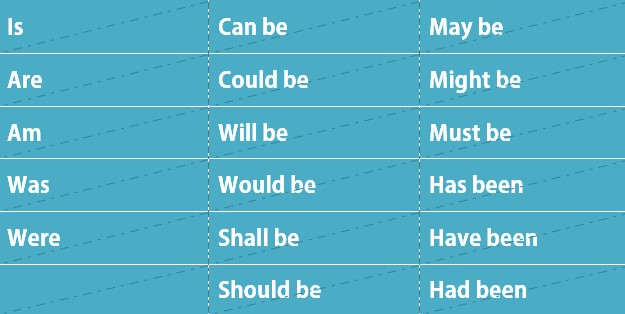Verbs followed by Gerunds
(5/5, 6 votes)
There is a rule for right forms of the verbs which asserts that two finite verbs cannot come consecutively. The later one must be transformed into a non-finite verb. The non-finite verbs are gerunds, participles, and infinitives. However, some finite verbs are always followed by the gerunds; some are always followed by the infinitives; others are followed by either gerunds or infinitives.
Verbs That Are Always Followed by the Gerunds:
The following list of verbs must be followed by an infinitive; not any other kinds of non-finite verbs.
|
Admit |
Deny |
Postpone |
Report |
Examples:
| Incorrect: I suggest to go to the cinema. Correct: I suggest going to the cinema. |
| Incorrect: He risked to come to meet me at my home. Correct: He risked coming to meet me at my house. |
| Incorrect: I did not delay to give her my number. Correct: I did not delay giving her my number. |
| Incorrect: He enjoyed to work with the president. Correct: He enjoyed working with the president. |
| Incorrect: John resumed to stay in that hotel. Correct: John resumed staying in that hotel. |
| Incorrect: I avoided to talk with her. Correct: I avoided talking with her. |
| Incorrect: I quit to go there. Correct: I quit going there. |
| Incorrect: He considered to leave this town. Correct: He considered leaving this town. |
| Incorrect: He minds to bring the keys for me. Correct: He minds bringing the keys for me. |
| Incorrect: My father postponed to go to the pilgrimage. Correct: My father postponed going to the pilgrimage. |
| Incorrect: He misses to use the smartphone. Correct: He misses using the smartphone. |
| Incorrect: My cat cannot resist to sleep when I caress it. Correct: My cat cannot resist sleeping when I caress it. |
| Incorrect: I appreciate to reach anywhere on time. Correct: I appreciate reaching anywhere on time. |
| Incorrect: He denies to be the best batsman in the team. Correct: He denies being the best batsman in the team. |
| Incorrect: He enjoys to sleep late. Correct: He enjoys sleeping late. |
| Incorrect: I have admitted to quit the job. Correct: I have admitted quitting the job. |
| Incorrect: He recalls to go to Alaska. Correct: He recalls going to Alaska. |
| Incorrect: He suggested to start the journey earlier. Correct: He suggested starting the journey earlier. |
| Incorrect: Alex risked to enter the cave. Correct: Alex risked entering the cave but he failed. |
| Incorrect: Robert enjoyed to rule all the seven kingdoms. Correct: Robert enjoyed ruling all the seven kingdoms. |
| Incorrect: He resents to invade other kingdoms. Correct: He resents invading other kingdoms. |
| Incorrect: He finished to triumph every war. Correct: He finished triumphing every war. |
| Incorrect: He appreciates to win the hearts of the people. Correct: He appreciates winning the hearts of the people. |
| Incorrect: I finished to travel with him. Correct: I finished traveling with him. |
| Incorrect: The students reported to have troubles with their tasks. Correct: The students reported having troubles with their tasks. |
| Incorrect: I practice to throw the spear in the morning. Correct: I practice throwing the spear in the morning. |
Published By LearnGrammar.Net
Grammar
Read More
- How to Use "Therefore" in Sentences Avoiding Common Mistakes
- How to Use "Whereas" with Examples and Avoid Common Mistakes
- When and How to Use "Thus" Correctly Without Common Mistakes
- How to Use "On the Contrary" Properly with Meaning and Examples
- When and How to Use "Either/Or" with Examples and Common Mistakes to Avoid
- How to Use "On the Other Hand" Effectively without Mistakes
- How to Use "Respectively" with Example and Common Errors to Avoid
- How and When to Use "Moreover" Without Mistakes
- How to Use "Likewise" in Sentences Based on Context & When not to Use
- When & How to Use "Although" in Sentences to Avoid Mistake

